This article is a response to a talk given by Sarah Schulman in Berlin on March 23rd 2015. The event was co-hosted by feminist collective Female Trouble and COVEN BERLIN. I obtained Sarah’s permission to write this article about her yet-unfinished book, “Conflict is not Abuse”, and she has checked it for misrepresentation.
It’s common for queers to disagree with each other over queer literature and theory. But when Sarah Schulman spoke at Kleiner Salon last Monday night, I was surprised at how many people seemed skeptical, at best, about her talk. In case you aren’t familiar, Sarah Schulman is a novelist, a non-fiction writer, a playwright, an activist and an AIDS historian. She has a policy of accepting invitations to underground events like this one at Kleiner, especially when she is flown somewhere by a major institution. The turnout was a-typically huge and drew folks from a wide array of Berlin queer scenes. Artists in performance and dance, fine art, music and academia came to see Sarah. The audience included some over-fifties and under-twenties, as well as Swedes, Spaniards, Germans, and English-speakers of all kinds. En masse, Sarah Schulman’s renown was obvious.
In the talk, Sarah set out to explain the thoughts she is working with for her next book, “Conflict is not abuse”, which will be published in two or three years. According to Sarah, a potential path towards peace is to understand that there is a difference between “abuse”, which is “power over” and “conflict” which is “power struggle” and not conflate the two. Then, many uncomfortable situations can be understood as normal human conflict, an unpleasant yet unavoidable part of life. It should be the community’s responsibility to not let conflict escalate, or to not let the repercussions of conflict become disproportionate, and to do this the community must understand the distinction between conflict and abuse. When violence is reported, the first question should be, “what happened?” and not “who should we punish?”
She suggested we shift our focus from trying to determine who is “the perpetrator” and who is “the victim” to being able to explain what happened, “the order of events.” The order of events helps to see both sides and therefore if it was “abuse” and not “conflict” that occurred, it will become clear. “Knowing what happened” includes being able to tell the story from the other person’s perspective, which makes resolution more possible. Essentially, she was asking for “the conflicted” and their communities to try to understand what both parties did, what their objectives were, what the consequences were so that the real source of the conflict can emerge and be dealt with.
“Israel has constructed a false sense of themselves as victims”, she said in a later email to me, which is why she claims this model of community solidarity and responsibility to intervene can be helpful for geopolitical and personal matters alike. As radical a proposition as this was, some audience members found it naïve.
Sarah’s other most contentious point was to say that calling the police was (almost) never the right solution in a situation of conflict. Instead, it is the community that has the “the responsibility to intervene, the responsibility to listen and to hear, the responsibility to be effective and the responsibility to be morally consistent.”
I’m not saying this proposal is not naïve and idealistic. But I do think it is radical and that we should hear it. It is radical for a feminist, queer person, and especially for someone who has dedicated most of her life to advocacy, research, and art making for/on/about the AIDS crisis (“AIDS changed everything”) to ask us to be more critical of the concept of the victim. Because Sarah is outspoken about this massive group of unremembered victims, I say it is radical for her to question the notion of the victim itself, especially when she knows better than anyone that this notion helps movements gain traction.
Sarah made an interesting analogy between traumatized behavior and supremacy to the effect that even though one is caused by the other, neither tolerates opposition and both over-perceive threat. For people in these positions it is difficult to tolerate challenge, which may lead to conflict escalation rather than problem solving. The statement ruffled a lot of feathers. But it is applicable to the queer community: it’s the Oppression Olympics.
I wonder if she is asking us to look at ourselves harder and be more critical of our own desires to use victimhood in order to be heard. Speaking from a western point of view, the queer community is full of trauma, but we cannot deny that this generation has had it easier than the generation that survived, or fell victim to, the plague.
I heard us cling to our traumas during the post-talk. Some people were outraged that their victimhood, or the victimhood of their friends and family in powerless situations, was being put to the test. I walked away from the lecture agreeing with the voices, but maybe I am programmed to agree with those voices rather than think about how it might serve them to be outraged in the first place. Following Sarah’s logic, this kind of programming, the inclination to go with the most traumatized voices, does not make me a responsible community member.
That the audience (myself included at the time) clung to their traumas and their victimhood, and was also outraged at the idea that our communities could be “bad”, or could escalate conflict, was for me the greatest success of the evening. We need to hear it. However, I don’t think that Sarah is hearing that there is another way that this specific audience relates to trauma; we need it to stay together. We build new ways to use language, to make art, and to make community (i.e. online) that are based on the kinds of queer traumas that were born post-AIDS. I don’t think that this relationship to trauma comes from being any more or less privileged, rather I think it comes from a need to have a strong community in an age where everything other than trauma challenges the quality of the time we spend physically, spiritually and mentally together.
To be clear, neither Sarah nor I are saying that no one is ever victimized. “I am saying that sometimes people feel or act abused when they actually have more power than they think.” Sarah said via email. I agree because I believe that we don’t need trauma in order to have a community, and that the AIDS/ACT UP era is not a model for what a queer community today should look like. Rather that they did the work, and died for it, so that we wouldn’t have to.
Sarah said that the political left has to be as far away from the center as possible, so that the center can be as left as possible. We are fans of Sarah Schulman. It’s why we turned up. Yet she made many of us disagree with her or feel threatened. She nailed us where it hurt, and where we thought we were the safest: right in the trauma and right in the community. It is safe to say that she’s doing her job well, pushing farther and farther to the left, being one of the few pioneers left from a generation full of them. I’m happy the talk made so many of us uncomfortable. Sarah said we are the first generation who feels entitled to comfort. I’m twenty-five. I can see that. Can you?
Words by Louise Trueheart
Illustration by Judy Mièl

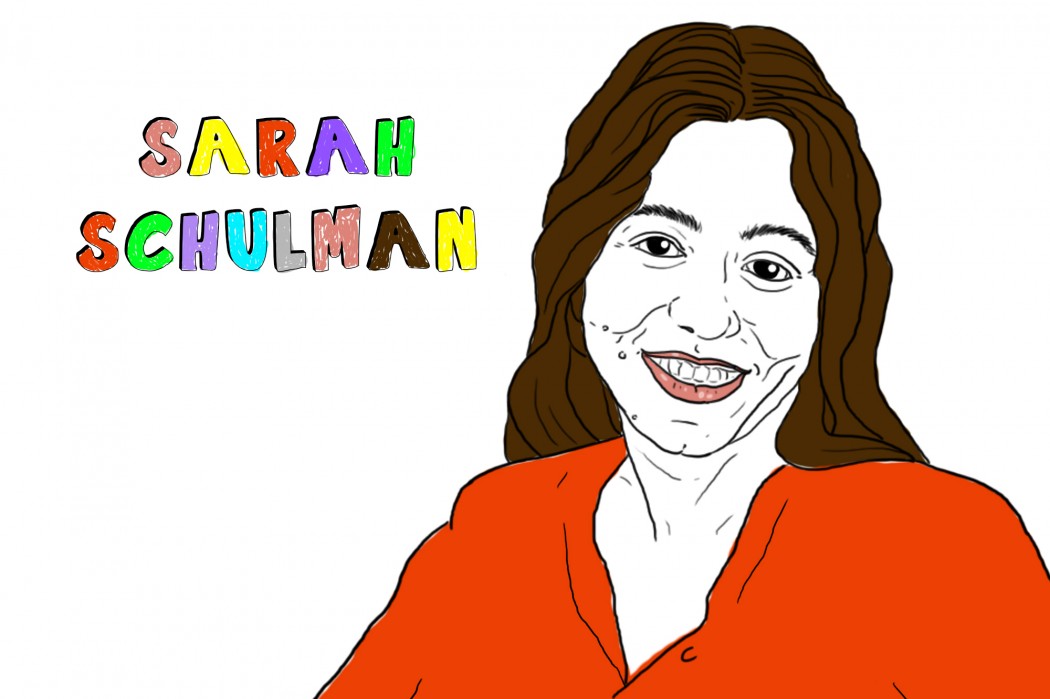
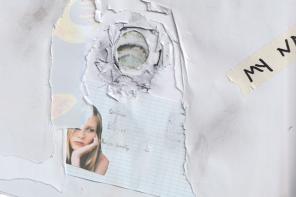

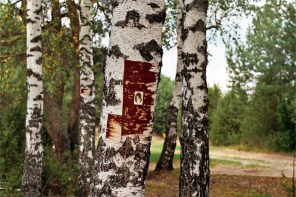

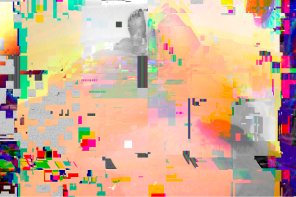
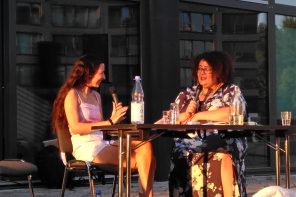
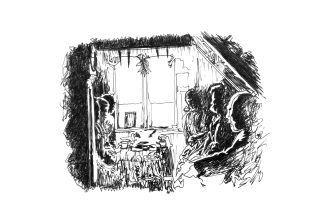
Louise and everyone, Thank you so much for the conversation.
I wasn’t there, but I don’t think Schulman grasps the half of it. The feminist and LGBT movements are now wholly absorbed into the currents of carefully nurtured victimhood — from sensationalized storylines of “campus rape” to “kiddie porn” to “sex trafficking” — that powers (together with the “war on terror”) the US’s descent into brute totalitarianism.
Shame on Schulman if she couldn’t bring herself to mention the 800,000 or so Americans on sex-offender registries who are rendered totally outside the protection of the law. Even lifetime prospective imprisonment for this class of Üntermenschen has been declared by the US Supreme Court as a matter of no more consequence than an adjudication over zoning. Registrants are subject to Jim Crow style restrictions on where they can live and what streets they can pass through — without even the benefit and historical knowledge transmitted by membership in an oppressed racial community.
Fervid feminist fantasists gave us such frauds as Satanic Abuse and recovered memory — destroying the lives of thousands, with never an apology or a reputation ruined (look at Gloria Steinem).
The sexual-identity movements — which did not “liberate homosexuals” (homosexual undergrounds were well established for centuries in the West) — have had their main impact in providing the hyperbolic state with new theological foundations for its most powerful and popular forms of damnation and degradation.
LGBTers are full-throated collaborators.
Queer quislings like Judith Butler theorize, in effect, that gender is socially constructed but our the juridical category that makes possessing an image of a 15-year-old youth with a hard-on is absolutely real — and she happily cashes her fat state paycheck from authorities that put people who do in prison for decades.
Urvashi Vaid from her featherbedded perch at Columbia U spearheaded a major report on LGBT & criminal justice but couldn’t be bothered to mention civil commitment or sex-offender registries or life-sentences for consensual teen sex — legal toilets down which the rule of law has been flushed (around sex second only to around “terrorism”).
Before she joined the Supreme Court purported lesbian Elena Kagan argued for – -and won — Federal powers to imprison for life, after serving their sentences, men whose only crime was looking at porn.
Nice to see some twinges of conscience, Sarah, but please follow the thread to where what are now ostentatiously state-supported “Aryanized” sexual identities and narratives of victimhood lead.
No less than an Israel bombing helpless, starved, locked-in Gazans, today’s LGBTers and feminists are hopelessly compromised by collaboration with state that defines its health through ritualized practices of utter human degradation and destruction.